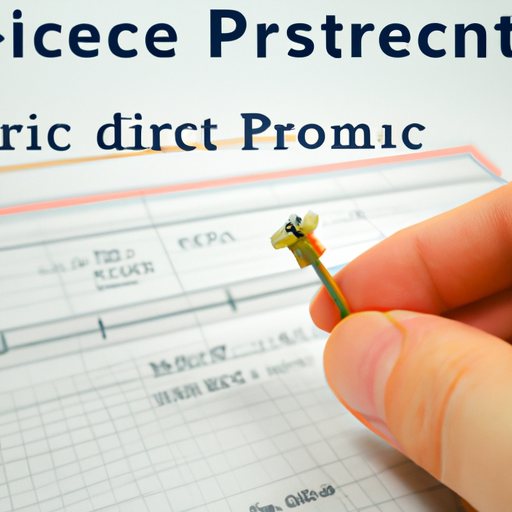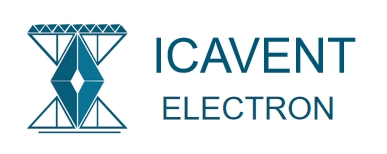What is the Purchase Price of the Latest Resistor Starter?

I. Introduction
In the world of electrical engineering, resistor starters play a crucial role in ensuring the smooth operation of various electrical devices. These components are essential for managing the initial surge of current when starting motors, thereby protecting them from damage. As technology advances, the design and functionality of resistor starters have evolved, leading to a variety of options available in the market today. This article aims to explore the purchase price of the latest resistor starters, providing insights into the factors that influence their cost and the different price ranges available.
II. Overview of Resistor Starters
A. Functionality of Resistor Starters
Resistor starters are devices that limit the initial current flowing into an electric motor. When a motor starts, it draws a significantly higher current than its normal operating level, which can lead to overheating and potential damage. Resistor starters mitigate this issue by introducing resistance into the circuit, allowing the motor to start gradually.
1. **How They Work in Electrical Circuits**: When the motor is powered on, the resistor starter temporarily adds resistance to the circuit. As the motor accelerates and reaches its operational speed, the resistance is gradually removed, allowing full current to flow. This controlled start-up process is vital for the longevity of the motor.
2. **Applications in Various Industries**: Resistor starters are widely used in industries such as manufacturing, HVAC, and automotive. They are particularly beneficial in applications where large motors are involved, such as conveyor systems, pumps, and compressors.
B. Types of Resistor Starters
There are several types of resistor starters, each designed for specific applications and requirements.
1. **Fixed Resistor Starters**: These starters use a set resistance value that does not change. They are simple and cost-effective but may not be suitable for all motor types due to their lack of adjustability.
2. **Variable Resistor Starters**: These allow for adjustable resistance levels, providing greater flexibility in managing the start-up current. They are ideal for applications where the motor load may vary.
3. **Electronic Resistor Starters**: Incorporating advanced technology, electronic resistor starters offer precise control over the starting process. They can automatically adjust resistance based on the motor's needs, making them suitable for modern, high-efficiency motors.
III. Factors Influencing the Purchase Price
When considering the purchase price of resistor starters, several factors come into play.
A. Material Quality
1. **Types of Materials Used in Manufacturing**: The materials used in the construction of resistor starters can significantly impact their performance and durability. High-quality materials, such as copper and specialized alloys, are often more expensive but provide better conductivity and longevity.
2. **Impact of Material Quality on Performance and Durability**: Starters made from superior materials tend to have a longer lifespan and better performance under high-stress conditions. This can justify a higher purchase price for those seeking reliability.
B. Technology and Features
1. **Advanced Features in Modern Resistor Starters**: The latest resistor starters often come equipped with advanced features such as digital displays, programmable settings, and integration with smart systems. These features enhance usability and efficiency but can also increase the price.
2. **Comparison of Traditional vs. Modern Designs**: Traditional resistor starters may be less expensive but lack the efficiency and control offered by modern designs. Buyers must weigh the benefits of advanced technology against their budget constraints.
C. Brand Reputation
1. **Influence of Brand on Pricing**: Established brands often command higher prices due to their reputation for quality and reliability. Consumers may be willing to pay a premium for products from trusted manufacturers.
2. **Examples of Reputable Brands in the Market**: Brands such as Siemens, Schneider Electric, and ABB are known for their high-quality electrical components, including resistor starters. Their products may be priced higher, but they often come with warranties and customer support.
D. Market Demand and Supply
1. **Current Trends in the Electrical Components Market**: The demand for efficient electrical components has been rising, leading to increased competition among manufacturers. This can affect pricing, with some brands offering discounts to attract customers.
2. **Seasonal Fluctuations in Pricing**: Prices for electrical components, including resistor starters, can fluctuate based on seasonal demand. For instance, demand may spike during the summer months when HVAC systems are in high use.
IV. Price Range of Latest Resistor Starters
Understanding the price range of resistor starters can help buyers make informed decisions based on their budget and application needs.
A. Entry-Level Resistor Starters
1. **Price Range and Features**: Entry-level resistor starters typically range from $50 to $150. These models often feature fixed resistance and basic functionality, making them suitable for small motors and less demanding applications.
2. **Suitable Applications**: Ideal for residential use or small-scale industrial applications, entry-level starters are perfect for simple tasks where high performance is not critical.
B. Mid-Range Resistor Starters
1. **Price Range and Features**: Mid-range resistor starters are priced between $150 and $500. These starters often include variable resistance options and enhanced durability, making them suitable for a wider range of applications.
2. **Suitable Applications**: These starters are commonly used in medium-sized motors, such as those found in commercial HVAC systems and manufacturing equipment.
C. High-End Resistor Starters
1. **Price Range and Features**: High-end resistor starters can cost anywhere from $500 to over $1,500. They typically feature advanced technology, such as electronic controls and programmable settings, providing precise management of motor start-up.
2. **Suitable Applications**: High-end starters are ideal for large industrial motors and applications requiring high efficiency and reliability, such as in heavy manufacturing and processing plants.
V. Where to Purchase Resistor Starters
Finding the right place to purchase resistor starters can impact both price and availability.
A. Online Retailers
1. **Popular E-commerce Platforms**: Websites like Amazon, eBay, and specialized electrical supply sites offer a wide range of resistor starters. These platforms often provide customer reviews and competitive pricing.
2. **Advantages of Purchasing Online**: Online shopping allows for easy price comparisons and access to a broader selection of products. Additionally, many retailers offer free shipping and return policies.
B. Local Electrical Supply Stores
1. **Benefits of Buying Locally**: Purchasing from local stores can provide immediate access to products and the opportunity to consult with knowledgeable staff. This can be particularly beneficial for those unfamiliar with resistor starters.
2. **How to Find Reputable Suppliers**: Researching local suppliers and reading customer reviews can help identify reputable stores. Additionally, asking for recommendations from industry professionals can lead to reliable sources.
C. Manufacturer Direct Purchases
1. **Advantages of Buying Directly from Manufacturers**: Purchasing directly from manufacturers can often result in lower prices and access to the latest products. Manufacturers may also offer warranties and customer support.
2. **Potential for Bulk Discounts**: For businesses requiring multiple units, buying in bulk can lead to significant savings. Many manufacturers offer discounts for large orders, making it a cost-effective option.
VI. Conclusion
In summary, the purchase price of the latest resistor starters varies widely based on several factors, including material quality, technology, brand reputation, and market demand. Understanding these factors can help buyers make informed decisions that align with their needs and budget.
Investing in quality resistor starters is essential for ensuring the longevity and efficiency of electrical systems. Whether opting for entry-level, mid-range, or high-end models, it is crucial to consider the specific application and requirements before making a purchase.
As technology continues to evolve, staying informed about the latest advancements in resistor starters will enable consumers to choose the best options for their electrical needs.
VII. References
- Electrical Engineering Textbooks
- Industry Reports on Electrical Components
- Manufacturer Websites and Product Catalogs
- Online Retailer Reviews and Comparisons
This comprehensive overview provides valuable insights into the purchase price of resistor starters, helping readers navigate their options effectively.
What is the Purchase Price of the Latest Resistor Starter?

I. Introduction
In the world of electrical engineering, resistor starters play a crucial role in ensuring the smooth operation of various electrical devices. These components are essential for managing the initial surge of current when starting motors, thereby protecting them from damage. As technology advances, the design and functionality of resistor starters have evolved, leading to a variety of options available in the market today. This article aims to explore the purchase price of the latest resistor starters, providing insights into the factors that influence their cost and the different price ranges available.
II. Overview of Resistor Starters
A. Functionality of Resistor Starters
Resistor starters are devices that limit the initial current flowing into an electric motor. When a motor starts, it draws a significantly higher current than its normal operating level, which can lead to overheating and potential damage. Resistor starters mitigate this issue by introducing resistance into the circuit, allowing the motor to start gradually.
1. **How They Work in Electrical Circuits**: When the motor is powered on, the resistor starter temporarily adds resistance to the circuit. As the motor accelerates and reaches its operational speed, the resistance is gradually removed, allowing full current to flow. This controlled start-up process is vital for the longevity of the motor.
2. **Applications in Various Industries**: Resistor starters are widely used in industries such as manufacturing, HVAC, and automotive. They are particularly beneficial in applications where large motors are involved, such as conveyor systems, pumps, and compressors.
B. Types of Resistor Starters
There are several types of resistor starters, each designed for specific applications and requirements.
1. **Fixed Resistor Starters**: These starters use a set resistance value that does not change. They are simple and cost-effective but may not be suitable for all motor types due to their lack of adjustability.
2. **Variable Resistor Starters**: These allow for adjustable resistance levels, providing greater flexibility in managing the start-up current. They are ideal for applications where the motor load may vary.
3. **Electronic Resistor Starters**: Incorporating advanced technology, electronic resistor starters offer precise control over the starting process. They can automatically adjust resistance based on the motor's needs, making them suitable for modern, high-efficiency motors.
III. Factors Influencing the Purchase Price
When considering the purchase price of resistor starters, several factors come into play.
A. Material Quality
1. **Types of Materials Used in Manufacturing**: The materials used in the construction of resistor starters can significantly impact their performance and durability. High-quality materials, such as copper and specialized alloys, are often more expensive but provide better conductivity and longevity.
2. **Impact of Material Quality on Performance and Durability**: Starters made from superior materials tend to have a longer lifespan and better performance under high-stress conditions. This can justify a higher purchase price for those seeking reliability.
B. Technology and Features
1. **Advanced Features in Modern Resistor Starters**: The latest resistor starters often come equipped with advanced features such as digital displays, programmable settings, and integration with smart systems. These features enhance usability and efficiency but can also increase the price.
2. **Comparison of Traditional vs. Modern Designs**: Traditional resistor starters may be less expensive but lack the efficiency and control offered by modern designs. Buyers must weigh the benefits of advanced technology against their budget constraints.
C. Brand Reputation
1. **Influence of Brand on Pricing**: Established brands often command higher prices due to their reputation for quality and reliability. Consumers may be willing to pay a premium for products from trusted manufacturers.
2. **Examples of Reputable Brands in the Market**: Brands such as Siemens, Schneider Electric, and ABB are known for their high-quality electrical components, including resistor starters. Their products may be priced higher, but they often come with warranties and customer support.
D. Market Demand and Supply
1. **Current Trends in the Electrical Components Market**: The demand for efficient electrical components has been rising, leading to increased competition among manufacturers. This can affect pricing, with some brands offering discounts to attract customers.
2. **Seasonal Fluctuations in Pricing**: Prices for electrical components, including resistor starters, can fluctuate based on seasonal demand. For instance, demand may spike during the summer months when HVAC systems are in high use.
IV. Price Range of Latest Resistor Starters
Understanding the price range of resistor starters can help buyers make informed decisions based on their budget and application needs.
A. Entry-Level Resistor Starters
1. **Price Range and Features**: Entry-level resistor starters typically range from $50 to $150. These models often feature fixed resistance and basic functionality, making them suitable for small motors and less demanding applications.
2. **Suitable Applications**: Ideal for residential use or small-scale industrial applications, entry-level starters are perfect for simple tasks where high performance is not critical.
B. Mid-Range Resistor Starters
1. **Price Range and Features**: Mid-range resistor starters are priced between $150 and $500. These starters often include variable resistance options and enhanced durability, making them suitable for a wider range of applications.
2. **Suitable Applications**: These starters are commonly used in medium-sized motors, such as those found in commercial HVAC systems and manufacturing equipment.
C. High-End Resistor Starters
1. **Price Range and Features**: High-end resistor starters can cost anywhere from $500 to over $1,500. They typically feature advanced technology, such as electronic controls and programmable settings, providing precise management of motor start-up.
2. **Suitable Applications**: High-end starters are ideal for large industrial motors and applications requiring high efficiency and reliability, such as in heavy manufacturing and processing plants.
V. Where to Purchase Resistor Starters
Finding the right place to purchase resistor starters can impact both price and availability.
A. Online Retailers
1. **Popular E-commerce Platforms**: Websites like Amazon, eBay, and specialized electrical supply sites offer a wide range of resistor starters. These platforms often provide customer reviews and competitive pricing.
2. **Advantages of Purchasing Online**: Online shopping allows for easy price comparisons and access to a broader selection of products. Additionally, many retailers offer free shipping and return policies.
B. Local Electrical Supply Stores
1. **Benefits of Buying Locally**: Purchasing from local stores can provide immediate access to products and the opportunity to consult with knowledgeable staff. This can be particularly beneficial for those unfamiliar with resistor starters.
2. **How to Find Reputable Suppliers**: Researching local suppliers and reading customer reviews can help identify reputable stores. Additionally, asking for recommendations from industry professionals can lead to reliable sources.
C. Manufacturer Direct Purchases
1. **Advantages of Buying Directly from Manufacturers**: Purchasing directly from manufacturers can often result in lower prices and access to the latest products. Manufacturers may also offer warranties and customer support.
2. **Potential for Bulk Discounts**: For businesses requiring multiple units, buying in bulk can lead to significant savings. Many manufacturers offer discounts for large orders, making it a cost-effective option.
VI. Conclusion
In summary, the purchase price of the latest resistor starters varies widely based on several factors, including material quality, technology, brand reputation, and market demand. Understanding these factors can help buyers make informed decisions that align with their needs and budget.
Investing in quality resistor starters is essential for ensuring the longevity and efficiency of electrical systems. Whether opting for entry-level, mid-range, or high-end models, it is crucial to consider the specific application and requirements before making a purchase.
As technology continues to evolve, staying informed about the latest advancements in resistor starters will enable consumers to choose the best options for their electrical needs.
VII. References
- Electrical Engineering Textbooks
- Industry Reports on Electrical Components
- Manufacturer Websites and Product Catalogs
- Online Retailer Reviews and Comparisons
This comprehensive overview provides valuable insights into the purchase price of resistor starters, helping readers navigate their options effectively.













